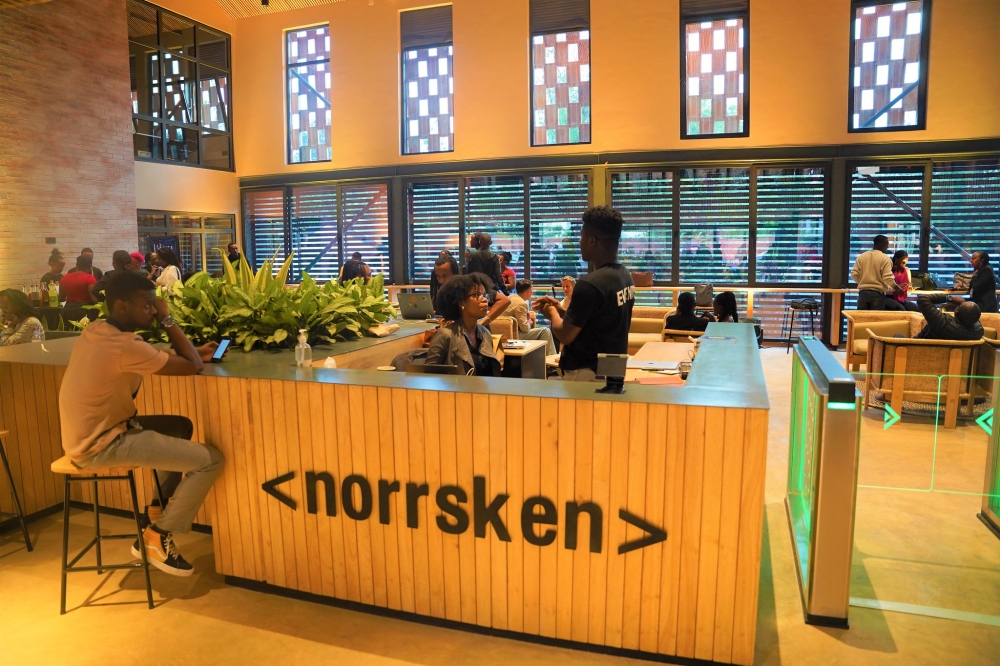

As Rwanda continues its journey towards economic growth and sustainable development, the country is charting a path towards the future of work, embracing technological advancements and fostering a balanced work-life integration for its citizens as we have seen in the new labor law.
While the future of work remains dynamic and subject to various influences, Rwanda's vision and proactive approach are laying a strong foundation for a resilient and prosperous workforce with the largest ever seen population of youth entering into the labor market and new technologies expanding opportunities both locally and globally.
In this context we need to ask ourselves how can organizations become ready for the future from a HR perspective?
Being the CEO of Sandberg Ltd, an HR company operating in Kigali since 2016 and as the Executive Director of the European Business Chamber of Rwanda, we are exploring how organizations in Rwanda can thrive in this evolving landscape while prioritizing the well-being and growth of their members.
The Future of Work in Rwanda will be characterized by the rise of the gig economy and heightened entrepreneurial activities. Traditional hierarchical workplace structures are making way for more fluid and agile setups, where individuals engage in short-term contracts and pursue entrepreneurial ambitions.
However, amidst this rapid transformation, the need for psychological safety and belonging has become more critical than ever before.
The gig economy is gaining momentum in Rwanda, offering individuals the flexibility, autonomy, and opportunities to explore diverse roles and industries. Similarly, entrepreneurship is on the rise, empowering Rwandans to pursue passion projects and cultivate unique skills.
To thrive in this new work paradigm, organizations must embrace and adapt to these changing work patterns. We believe forward-thinking companies need to integrate gig workers as valued members of their teams, fostering collaboration and inclusivity across all work arrangements.
This collaborative approach allows organizations to leverage the collective expertise of both full-time employees and gig workers, driving innovation and creativity. According to Majken Juel Heskjaer, International Executive HR advisor.
"Many organizations hesitate to hire gig workers, as the paradigm of "appearance equal’s performance” is a common but stereotyped old narrative that CEO’s need to evaluate.
With the rise of technology in business many have realized that it is not the organization to decide on the agenda by all means.
Lack of skilled professionals within tech, puts pressure on hiring managers to accept new ways of working. And when the tech employees become gig workers or digital nomads, it influences the entire culture”
Psychological security is one of the cornerstones on which healthy organizations are built, especially in the gig economy. In Rwanda, the lack of financial security is leading to a workforce less committed to their companies and more focused on securing economic stability for their families.
The transient nature of employee behavior and the gig economy also impacts the desire of companies to invest in employees and nurture their journey within the organization.
The employee behavior and gig economy's influence has presented both opportunities and challenges for organizations operating in Rwanda. While it offers new avenues for employment, it has also contributed to higher employee turnover across various sectors.
Freelancers and gig workers often switch between projects or clients, seeking better remuneration or growth opportunities, resulting in reduced long-term commitment to one employer.
Rwanda's economic landscape places pressure on families, necessitating multiple sources of income to sustain households. This economic reality sometimes leads individuals to opt for higher-paying opportunities, even if they involve shorter tenures, resulting in higher turnover rates for employers.
To address the challenge of high turnover and foster employee loyalty in the gig economy era, companies in Rwanda can implement six key strategies; competitive compensation and benefits, encourage flexibility and work-life integration, invest in skill development, support the process of psychological security and well-being, create a positive work culture, offer long-term career growth opportunities and encourage internal mobility.
But companies need to think even further - beyond the company walls - as talent leave is inevitable. If you can create a long-lasting loyalty where employees who seek new adventures outside the company know that they are always welcomed back, you can create a positive talent flow.
Talents who seek new positions outside the company, will come back with new skills and new perspectives, adding value to the team. Creating this kind of long range loyalty will even impact your employer brand, creating a more qualified candidate pool, says Majken Juel Heskjaer.
As Rwanda navigates the evolving work landscape shaped by new generations, the gig economy and economic pressures, addressing high turnover becomes crucial for sustainable business growth. By adopting these retention strategies and understanding the changing needs and aspirations of the workforce, companies and organizations can build a loyal and committed talent pool, ensuring their success in the dynamic and competitive business environment.
The author is the CEO of Sandberg ltd HR company in Kigali and Executive Director of the European Business Chamber of Rwanda


